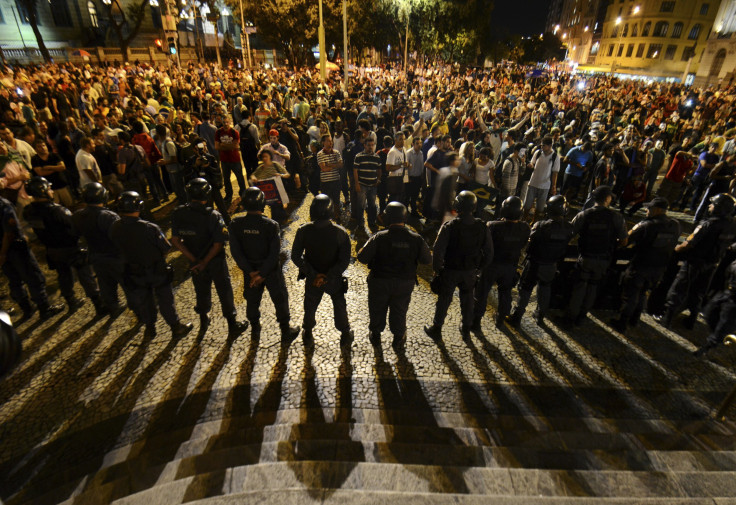Mexico And Argentina Are The Most Corrupt Countries In Latin America, Survey Reveals

In the unpleasant contest of which country is perceived as the most corrupt in Latin America, this year’s winner is a tie. Mexico and Argentina lead the list compiled by nonprofit group Transparency International, which examined the view citizens have over their governments and authorities as trustworthy and reliable entities.
Seventy-two percent of Argentines and 71 percent of Mexicans think their country’s corruption has grown in the past year. A close third is Venezuela, with 67 percent of population saying corruption runs rampant. It is precisely Venezuela the NGO gives as an example of classic corruption. A 50-year-old woman, Carmela, described the day when a group of policemen burst into her home and arrested her 27-year-old son and would not let him go free until she paid a ransom.
The report pointed out what institutions were the most affected, and results varied in different countries. The police was named the most corrupt entity in Bolivia, Venezuela, Mexico and El Salvador. Politicians and political parties shared the top spot in Mexico and Argentina and came just behind legislators as the top corrupt authority in Brazil.
Brazil, a country that has made headlines recently over massive protests targeting corruption, among other things, had a very modest 27 percent of population saying that corruption had increased a lot in the past year. However, 72 percent of respondents said that lawmakers were extremely corrupt. Uruguay and Colombia also pointed at legislators as their most corrupt authority.
Transparency International also pointed out the interesting argument that most institutions people rely on to fight corruption are themselves not trusted -- and this is a global trend, not exclusive to Latin America. Bribes are a common thing the world over, the report said. For instance, a multinational like Walmart is under scrutiny in Mexico for bribing local officials.
The NGO remains positive, nevertheless. “Bribe-paying levels remain very high worldwide, but people believe they have the power to stop corruption, and the number of those willing to combat the abuse of power -- 61 percent of total global respondents -- is significant,” Huguette Labelle, chair of Transparency International, said.
© Copyright IBTimes 2025. All rights reserved.





















